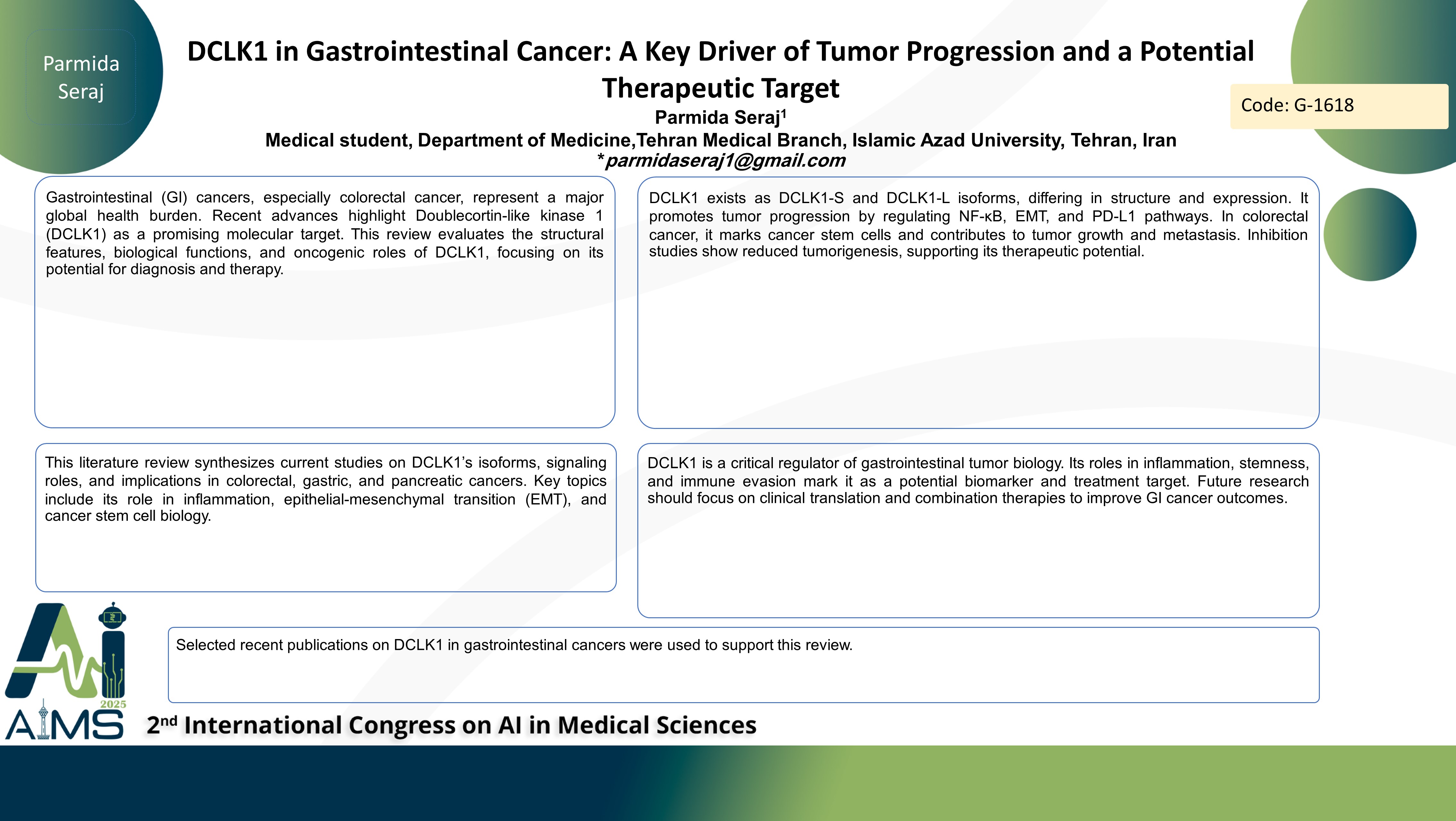DCLK1 در سرطانهای دستگاه گوارش: محرک اصلی پیشرفت تومور و هدف درمانی بالقوه
کد: G-1618
نویسندگان: پارمیدا سراج * ℗
زمان بندی: زمان بندی نشده!
برچسب: تشخیص و درمان سرطان
دانلود: دانلود پوستر
خلاصه مقاله:
خلاصه مقاله
Background and aims: Gastrointestinal (GI) cancers are a leading cause of cancer-related mortality globally, with colorectal cancer being the most prevalent. Modifiable risk factors play a significant role in their incidence. Early detection and therapeutic interventions are crucial to reducing mortality. A promising target for such interventions is doublecortin-like kinase 1 (DCLK1), a protein that has garnered attention for its potential role in GI cancer progression. This review aims to explore the structure, function, and role of DCLK1 in GI cancers, focusing on its therapeutic potential. Method: This review synthesizes recent literature on DCLK1, specifically focusing on its structure, isoforms, and involvement in various cancer pathways. The review examines DCLK1’s function in normal and cancerous tissues, highlighting its role in GI cancers like colorectal, gastric, and pancreatic cancers. Key aspects explored include DCLK1’s involvement in inflammation, tumor progression, metastasis, and cancer stem cell maintenance. Results: DCLK1 is a microtubule-associated protein kinase that exists in two isoforms, DCLK1-S and DCLK1-L, which differ in their structural domains and expression patterns. DCLK1 regulates several key cancer-related pathways, including inflammation through NF-κB signaling, tumor proliferation via EMT, and immune evasion by modulating immune checkpoint proteins like PD-L1. In colorectal cancer, DCLK1 is considered a marker for cancer stem cells and is associated with tumor growth and metastasis. Preclinical studies suggest that inhibition of DCLK1 can reduce tumor initiation and progression. Conclusion: DCLK1 plays a pivotal role in the progression of GI cancers, particularly colorectal cancer, by regulating tumor growth, metastasis, and cancer stem cell maintenance. Its dual role in both inflammation and cancer-related signaling pathways positions it as a promising diagnostic marker and therapeutic target. However, further research is necessary to fully understand its mechanisms of action and interactions with other signaling pathways, paving the way for targeted therapeutic strategies to improve patient outcomes in GI cancers.
کلمات کلیدی
Artificial Intelligence, Medicine, Cancer, DCLK1
